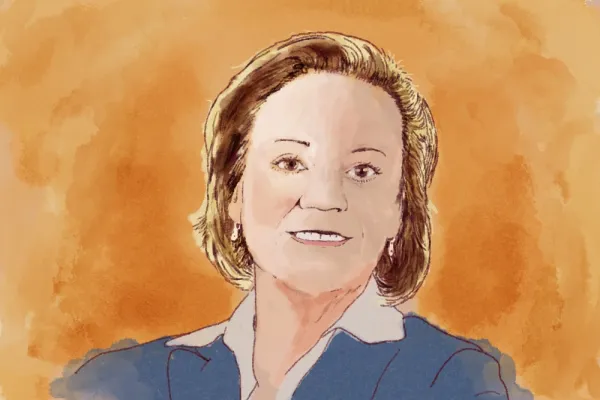A single post on X by Roaring Kitty sent GameStop shares soaring this week, and before the mania began to subside, short sellers were down more than $2 billion in the name — a move that fueled short squeezes in meme stocks and likely boosted a handful of hedge funds that were long both GameStop and AMC Entertainment.
Roaring Kitty, the handle for retail investor Keith Gill who started the GameStop craze in 2021, re-emerged on X (formerly known as Twitter) Sunday for the first time since June of 2021. But while he made dozens of obscure posts in a matter of days, none of them gave any indication of whether he had opened a new position in GameStop — or why.
Until that time, GameStop shares had been slightly down for the year but are now up more than 50 percent — even after falling almost 19 percent on Wednesday. The stock had been a laggard since the meme stock craze fizzled. But its value almost tripled during Monday and Tuesday’s rally.
That could benefit a handful of hedge funds that owned it as of the end of the first quarter, according to their just-filed 13Fs with the Securities and Exchange Commission. If they stuck with it or sold during the runup, they could have profited handsomely from the recent surge.
These hedge funds include quant firm Renaissance Technologies, which opened a position in GameStop during the first quarter, D.E. Shaw, Millennium Management, Balyasny, and Two Sigma.
On the other side of the trade, short sellers also had significant exposure. As the mania peaked, short interest in GameStop was $1.92 billion, for almost 24 percent of the float, according to S3Partners’ Ihor Dusaniwsky. He calculated that the shorts were down $2.2 billion at that time.
However short sellers told Institutional Investor that they haven’t seen any evidence of the type of carnage wreaked on shorts like that experienced by hedge fund Melvin Capital in 2021.
AMC Entertainment Holdings, which had been down some 44 percent this year until this week, has been another beneficiary of the meme stock comeback. Before the rally lost steam on Wednesday, shorts were down about $371 million, according to Dusaniwsky. Short interest in the stock is $293 million, with a relatively high 19.18 percent of the float shorted.
Even as the rally subsided, the stock was still up 86 percent this week.
That could be a relief for the hedge funds owning it, which appear to be some of the same ones that own GameStop shares, according to the latest filings. They include Renaissance Technologies and D.E. Shaw, which are the third and fourth biggest owners of the stock respectively. Others include Citadel Advisors and Millennium. Balyasny and Coatue Management each took a new position in the first quarter.
All of the hedge funds either did not return a request for comment or declined to do so when asked if they had taken the opportunity to sell out during the stock surge this week.
Meanwhile, Goldman Sachs’ short basket, which includes the 20 most heavily shorted names, was up about 15 percent for the month as of Wednesday. In addition to GameStop, the basket includes well-known shorts such as Carvana, Plug Power, SoundHound AI, Sunrun, Enovix, and Trupanion. AMC is not on the list.







